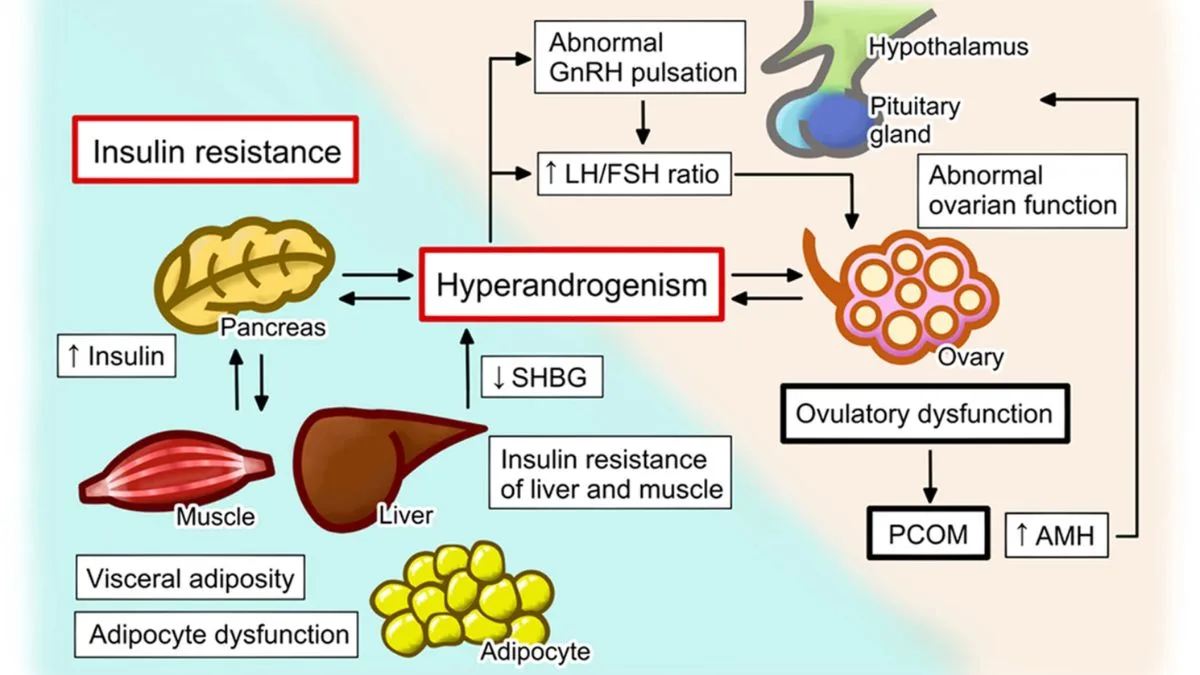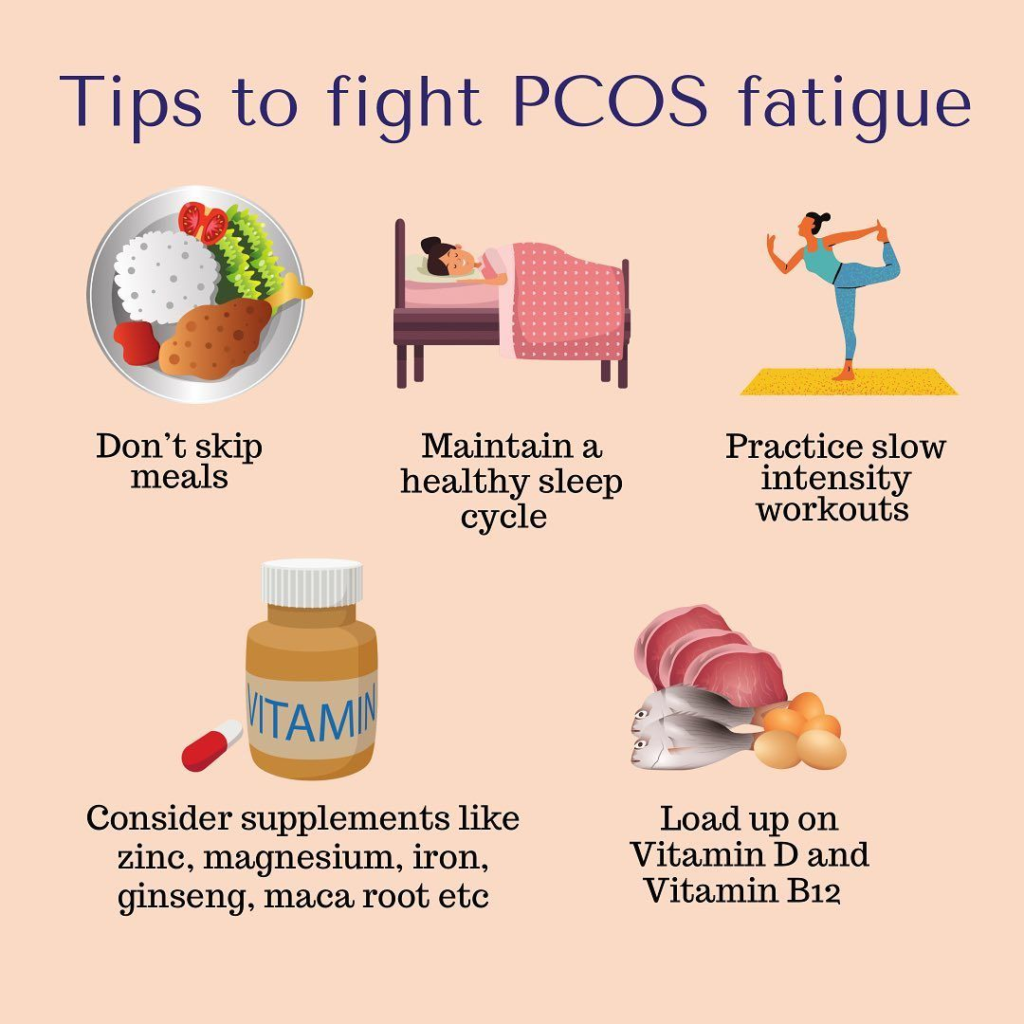The Link Between PCOS And Insulin Resistance: Know How To Improve Insulin Sensitivity

Polycystic ovarian syndrome (PCOS) is a hormonal disorder that can lead to infertility, acne, excess hair growth, and ovarian cysts. One of the common features of PCOS is insulin resistance, which means that the body is unable to respond to insulin properly. Insulin resistance can cause inflammation, weight gain, and an increase in male hormones that cause PCOS. Some research suggests that insulin resistance may actually cause PCOS. High insulin levels can also stimulate the ovaries to produce more androgens, which can disrupt ovulation and cause PCOS symptoms. Improving insulin sensitivity can help manage PCOS and prevent or delay diabetes. Losing weight, eating a balanced diet, exercising regularly, managing stress, and getting enough sleep can improve insulin sensitivity. Early detection and treatment, as well as weight loss, may reduce the risk of long-term consequences like type 2 diabetes and heart disease. Therefore, it is important to get screened for insulin resistance if you have PCOS or suspect you might have it. A simple blood test can measure your fasting blood sugar and insulin levels, as well as your haemoglobin A1c (HbA1c), which reflects your average blood sugar over the past three months.
Other Ways to Manage PCOS:

In addition to improving insulin sensitivity, there are other ways to manage PCOS. For example, hormonal birth control can help regulate periods and reduce androgen levels. Metformin, a medication commonly used to treat type 2 diabetes, can also improve insulin sensitivity and regulate menstrual cycles in women with PCOS.
Furthermore, lifestyle changes such as quitting smoking and reducing alcohol consumption can also help manage PCOS symptoms. It’s important to work with a healthcare provider to develop a personalized treatment plan that meets your individual needs and goals.
The Bottom Line

PCOS is a common hormonal disorder that can lead to a variety of health issues, including insulin resistance and type 2 diabetes. By improving insulin sensitivity through lifestyle changes such as weight loss, diet, exercise, stress management, and adequate sleep, women with PCOS can manage their symptoms and reduce their risk of long-term health consequences.
The Hindustan Herald Is Your Source For The Latest In Business, Entertainment, Lifestyle, Breaking News, And Other News. Please Follow Us On Facebook, Instagram, Twitter, And LinkedIn To Receive Instantaneous Updates. Also Don’t Forget To Subscribe Our Telegram Channel @hindustanherald








